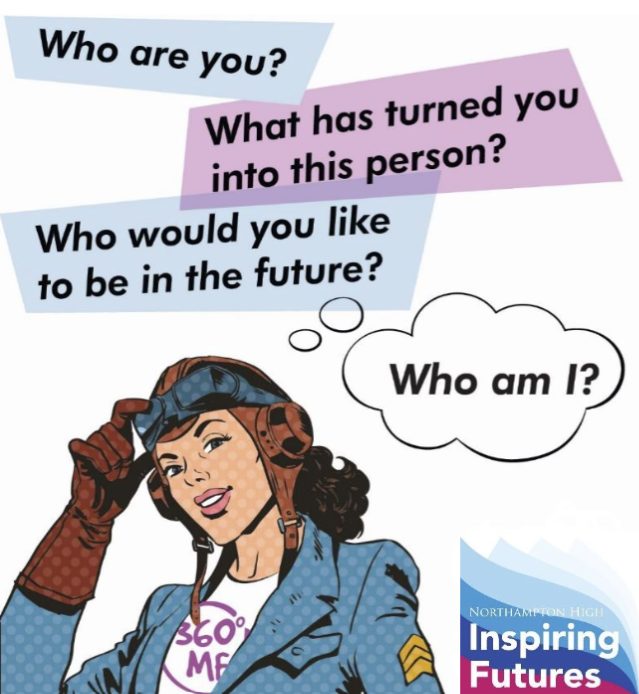Globalisation and Languages: Yet more reasons to be a lifelong learner!
If you ask my A level Geography classes to outline the cause of Globalisation, I am confident they would be able to describe a range of different factors, all of which would be convincingly linked to the start of the process that we know as globalisation. Diligent students would perhaps first offer you a definition of globalisation along the lines of, ‘The movement of people, goods, capital and information between countries with few to no barriers.’ They would discuss the rise of the internet and fibre optic cables, connecting us to remote parts of the planet in mere seconds. Some might talk animatedly about the developments in commercial air travel, connecting us physically for work or for pleasure, allowing us to traverse the globe and see the wonders that it has to hold. Others might delve a little further back to the 1950’s and the birth of containerisation, enabling transport of anything and everything from tropical fruits to the latest electronics. Those who are really showing off may go back further still and touch on geographies of exploration and the colonial era of the 16th century. They would explain the role that western European explorers played in finding new lands and making contact with new communities of people. And to be honest, I’d be pleased with this as the content for any good A level answer!
Beyond that however, there is substantial evidence to suggest that ancient maritime practices in the Pacific, may have dated as far back as 3000BC. The Austronesians traversed the Pacific and much of the Indian ocean right up until 1200AD, taking with them their heritage, their culture and their knowledge of the sea and their natural surroundings. This then must be a very good example of early globalisation. But I am left wondering if the start of globalisation is even simpler than this. A more human approach perhaps, and some might accuse me of being overly romantic here, but maybe the first examples of globalisation were simply those points where someone bothered to learn to communicate with someone outside of their familiar surroundings. An attempt to learn a new language or signal to one another to reach some form of mutual understanding.
This year, encouraged by my Dad, who is himself a natural linguist, I have started to re-learn German, a language I first learnt when I was in year 8 but, regrettably, discarded when I reached GCSE. My father has always been good at languages. He studied them at university as part of a Theology degree, learning Latin and Ancient Greek. From there, he has taught himself German, and enough French to get by, occasionally dabbling in either Italian or Spanish depending on the Kneen family holiday destination each year. It brings him genuine satisfaction to be able to successfully converse with someone in another language and I have always considered him to be a lifelong learner.
So, inspired by this, a few weeks ago I downloaded Duolingo (other language apps are available!) and made a fresh start on the German language. I must admit that I am really only at the very start of this journey, and the introductory phrases are more about getting to know the sounds and patterns that form within the language, than being able to communicate freely in conversation. At least, I hope this is the case as I am not entirely sure when I will need the phrase, “Mein Elefant ist sehr schön”, (my elephant is very beautiful!). I am loving it so far though, and there is something rather addictive about challenging yourself to learn and retain more and more. If you can get past the initial hilarity of some of the phrases, my current favourite being, “Meine Eule spielst immer Schach”, (my owl always plays chess!), then you start to make progress rather quickly. In dedicating just 10 or 15 minutes per day, I have already accrued a range of new words and phrases and, to coin a phrase from Dr Lee, I am definitely ‘10% prouder’ than I was before I started.
I have always told myself, rather unhelpfully, that I don’t have an ear for languages. This is mostly an excuse to cover my own disappointment in myself that I don’t speak another language well, and also offers something vague to say to students when they ask me if I speak another language. In reality, this is one of those things that we tell ourselves sometimes, when we are looking for a reason why we have not succeeded in something. I have conversations with pupils every day, about the need for them to be resilient, to persevere with their learning and to try new things or at least have a go at things that previously they have found to be a challenge. The irony of these conversations is not lost on me and so my resolution for this year is to persevere and demonstrate my own resilience in learning.
Languages have an important link to globalisation because globalisation promotes cultural exchange and understanding. Learning a language allows individuals to immerse themselves in different cultures, understand diverse perspectives, and appreciate the richness of global heritage. This cross-cultural understanding is crucial in a globalised world where people from different backgrounds interact. Diverse perspectives and backgrounds are valued, and learning languages enables individuals to engage with people from different linguistic and cultural backgrounds, fostering a sense of inclusivity and promoting diversity. Learning a language is also a key aspect of being a global citizen. It involves not only understanding other languages but also appreciating diverse cultures and having a sense of responsibility towards global issues. Language learning contributes to the development of a global mindset and fosters better global relationships. Globalisation has led to increased international trade and business interactions. Companies operate on a global scale, and employees who can speak multiple languages are valuable assets. Learning languages relevant to international business can enhance career opportunities and improve collaboration in a globalised workplace.
So perhaps, in this ever globalising world that we live in, now is the perfect time to learn a language, and certainly a significant reason why we value language learning so highly at Northampton High School. But there is another side to this coin, and another reason that globalisation may inspire us to learn new languages.
One of the downsides to globalisation as a process, is that it can cause something called cultural erosion. Essentially, this is the stripping away of one culture to make way for another culture to sit in its place. There are many examples of this, and again my A level students will have a range of anecdotal points to make here (or if they don’t I assume they are all now scurrying off to their textbooks to remind themselves!). My Dad’s own cultural heritage is Welsh, and about a year ago he decided, in a bid to do his bit to promote a language that is spoken by very few, to learn the language for himself. To give this some context, in 2021, only around 17.8% of Welsh nationals actually spoke Welsh. Globally the number equates to just over 538,000 people in total. In comparison to English, with 1.4 billion people speaking the language globally (that’s nearly 18% of the global population), the number of Welsh speakers is very few indeed.
In addition to the modern foreign languages that are on offer in school, I am always thrilled to hear about students who have chosen to formally study languages that are spoken at home by family members. Over the years, students here have taken GCSE’s in Mandarin, Urdu, Gujarati, Punjabi, Persian and Arabic to name just a few. The effort and determination demonstrated by those students to independently persevere with a language is really something to be proud of and we would always encourage students to maintain those strong connections to their own cultural heritage through language.
So, what will your next step in languages be this year? Pupils at the High School have access to a range of online resources to boost their opportunities for practising their languages. Quizlet and Language Gym are used extensively and our GCSE and A level students also have access to Kerboodle Active Learn. There are lots of other apps out there as well. Duolingo, is the one I have chosen and it does have a free version that you can try out, to see if you get on with it. This might be a great extra to have in your back pocket and could really boost your performance in your chosen languages. Dare I say it, it may even give you a refreshing break from scrolling through TikTok!
Parents, you are not off the hook here. What will your next steps in languages be? Perhaps you already speak multiple languages yourself. Do you have room for one more? What about the languages your daughter is learning at school? Challenge her to see who can learn the most vocabulary in a set amount of time, or who can create the most bizarre but grammatically correct sentences! The most important thing is to try and have fun with it. Enjoy learning and engage with it for as long as you are able. And whatever it is we choose to learn, in a world where globalisation means that the speed of information sharing is exponential, can any of us really afford not to be lifelong learners?
Miss Kneen
Deputy Head Pastoral

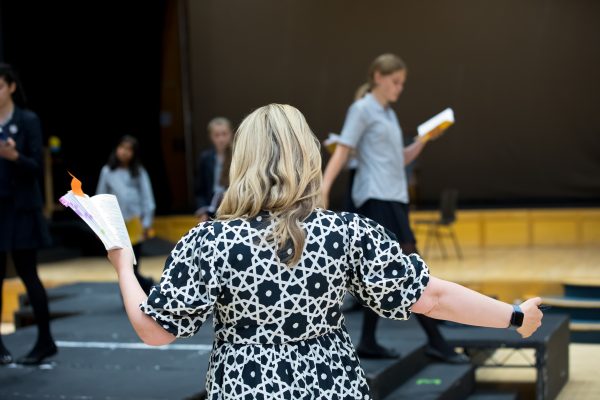
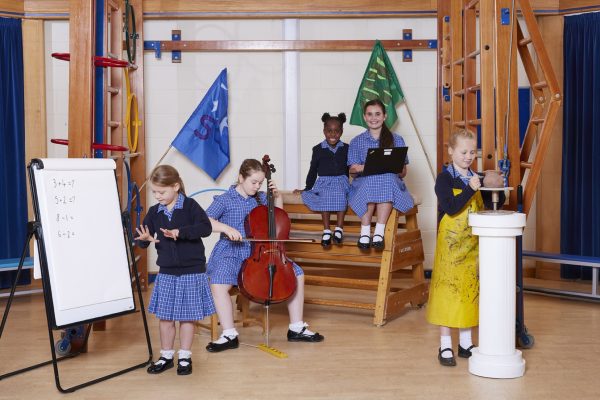
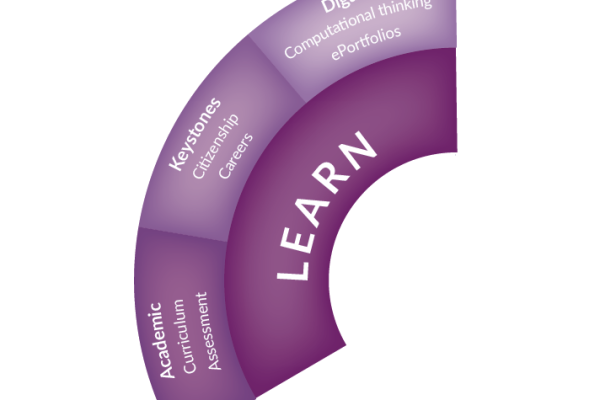
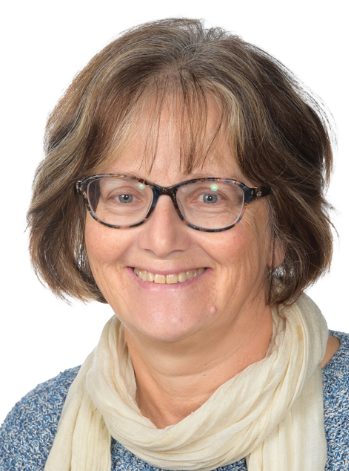 It is a pleasure to introduce our new Careers Coordinator, Wendy Forsyth, who will be known to many of you as a member of the Maths faculty. Mrs Forsyth comes from an engineering background and runs the popular ‘problem-solving maths’ elective in the Sixth Form. This course focuses on the kinds of skills needed in mathematics to develop solutions to some of the most important issues facing the world today. She is also a tutor in the Sixth Form and has worked closely with students and other staff members to help them choose the best courses at university to enable them to achieve their ambitions for the future.
It is a pleasure to introduce our new Careers Coordinator, Wendy Forsyth, who will be known to many of you as a member of the Maths faculty. Mrs Forsyth comes from an engineering background and runs the popular ‘problem-solving maths’ elective in the Sixth Form. This course focuses on the kinds of skills needed in mathematics to develop solutions to some of the most important issues facing the world today. She is also a tutor in the Sixth Form and has worked closely with students and other staff members to help them choose the best courses at university to enable them to achieve their ambitions for the future.